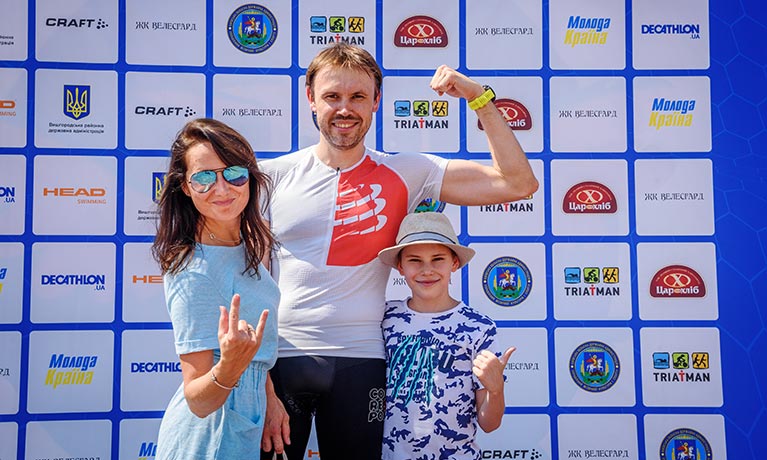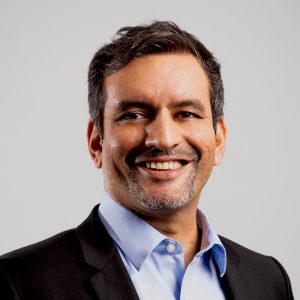Ironman Andriy is back in the pool 6 weeks after biceps tenodesis and subacromial decompression for his shoulder injury

I would like to thank Professor Noorani for the surgery and treatment. From the first moment, I had no doubts that I found very experienced person I could rely on. My overall experience has been very positive, as it was no mess, no stress: surgery in the morning and back home in the evening; after surgery follow up and recovery recommendation. Physio was good as well.
TAGGED INProfessor Ali Noorani
Shoulder & elbow sports injury and trauma
Shoulder decompression surgery
As a keen amateur triathlete Andriy wanted a permanent solution to allow him to continue to compete
Following a half Ironman competition in August of that year, Andriy decided to investigate the source of the pain in his shoulder. He was unsure about what had caused it as there had been no specific injury, trauma or fall during this race.
He had an MRI scan firstly in Ukraine and then a second scan in the UK, both of which confirmed he needed surgery. A colleague of Andriy’s suggested he see Professor Noorani who had been recommended to him from another surgeon.
At their first appointment in November, Professor Noorani reviewed these scans, which suggested to him that Andriy had a biceps pulley lesion with the biceps subluxed, or dislocated, on the top of the groove resulting in some damage to the subscapularis (a muscle in your shoulder that helps you internally rotate your arm).
Professor Noorani explains why a biceps pulley lesion is often a progressive problem: “The biceps, once it becomes unstable, compromises the integrity of the subscapularis and can continue to cheese-wire into the tendon. These are one of the few indications in the shoulder world to offer an intervention to do a biceps tenodesis to prevent further problems to the rotator cuff.”
Professor Noorani suggested a repeat of the MRI scan to look at the state of Andriy’s biceps and rotator cuff to compare this to the ones taken previously. This showed there was still some medial subluxation of the biceps tendon in-keeping with an underlying biceps pulley lesion and the appearances were very similar to the previous MRI scan. The subscapularis also demonstrated a subtle split suggestive of a compromise due the biceps pulley lesion and an underlying SLAP tear.
Andriy was keen to take part in an Ironman competition in May 2020 and had the choice to either start intensive physiotherapy and see how his shoulder progressed, or proceed straight to surgery, followed by rehabilitation to resolve the condition completely.
Whilst he was apprehensive about surgery, on balance, whilst he was coping with this injury in his day to day life, he wanted to be able to continue to swim and maintain the active way of life he enjoyed. So, in discussion with Professor Noorani he opted for the surgical route.
Professor Noorani carried out an arthroscopic subacromial decompression along with a long head of the biceps subpectoral tenodesis to Andriy’s right shoulder in January 2020, which aimed to improve/restore the position of Andriy’s shoulder and to improve the chance of him having a better functioning shoulder in the long term.
Following surgery, Andriy’s recovery progressed quickly, he stopped wearing a sling within a week, after two weeks he started an easy training session on his indoor bike. After three weeks he began running outside, at 6 weeks he was in the pool again swimming 1500m and was pleased with his progress.
Now, three months after surgery his shoulder is feeling good and he can swim with no pain at all. His advice for patients: “I would say don’t wait – go to a specialist, investigate with several independent doctors (at least two) and have the surgery if needed; it will help you to stay active and healthy for a long time.”
Andriy summarises: “I would like to thank Professor Noorani for the surgery and treatment. From the first moment, I had no doubts that I found very experienced person I could rely on. My overall experience has been very positive, as it was no mess, no stress: surgery in the morning and back home in the evening; after surgery follow up and recovery recommendation. Physio was good as well.”
Professor Noorani says of Andriy’s recovery: “Andriy is doing really well. When I saw him six weeks after his subacromial decompression and biceps tenodesis he was almost completely pain free with good active and passive range of motion. Testing his biceps, he has very good strength and no pain on provocation, I am delighted for him.”

Looking to speak to our team? Call us on 020 7046 8000 020 7046 8085
To book an appointment
or refer a patient


